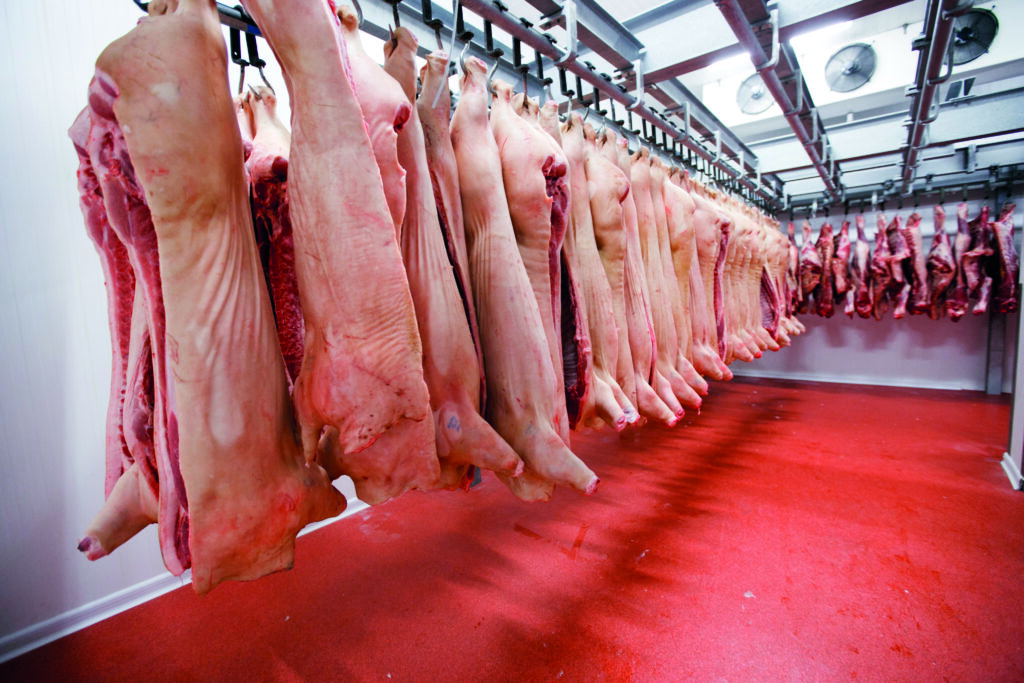New Food Standards Agency (FSA) inspection fees come into force today, which, according to meat industry representatives, could significantly push up fees overnight for some operators.
The Association of Independent Meat Suppliers (AIMS) has described the increases as ‘frankly outrageous’.
AIMS veterinary director Peter Hewson said: “In the absence of any impact assessment being carried out by FSA before it changed its discount distribution, AIMS has analysed the invoices of six medium sized abattoirs and found that their charges will rise by between 22% and 28% this year.
“The study also found that in some cases over 25% of FSA charges was the result of charging for unworked hours. A clear demonstration of the inefficiency inherent in the delivery system.”
Dr Jason Aldiss, AIMS executive director, added: “This latest gouge comes not with improved service, innovation, or meaningful reform, but from an FSA bloated with bureaucracy, riddled with inefficiencies, and propped up by profiteering private contractors.
“While the Government assures us inflation is below 3%, it is curious then, that a taxpayer-funded body feels entitled to deliver an inflation-busting 25% increase with no justification whatsoever”.
“The FSA’s mantra, endlessly repeated, is that meat inspection is a vital public protection. If that’s so—if this is truly a ‘public good’—then let the taxpayer pay for it in full, not just the hard-pressed food businesses already bearing the burden of keeping the nation fed”.
“We produce some of the safest, highest-quality meat in the world, and that’s a testament to the men and women working in abattoirs and across the supply chain. The industry delivers excellence in the face of continual interference, soaring charges, and regulatory overreach”.
AIMS has launched legal action challenging the charges. After Roythornes Solicitors, acting for AIMS, commenced the action, AIMS veterinary director Peter Hewson said there were two reasons behind the decision.
The first is the FSA’s insistence on focusing any discussion on the meat charges ‘subsidy’ rather than looking for the causes of the excessively high charges, he said.
“And, secondly, the scale of the increase in charges to be introduced from April 2025 will see them rise by 11% for the industry as a whole and charges for medium sized abattoirs increase by 25%,” he added.
FSA comment
Writing on the Pig World website in October, as the FSA sought industry views on changes to charges, James Cooper, FSA deputy director of food policy, explained the reasons behind the increases.
“HM Treasury requires that the cost of regulatory services provided by Government departments should be recovered in full. This includes charging abattoirs for the inspections our vets and meat inspectors carry out,” he said.
“Over the years, the FSA has been able to offer discounts to the meat industry because of the value this work provides for the taxpayer. Many businesses don’t pay the full rate, with small abattoirs paying the least for these essential official controls.
“Our charge rates for the meat industry though are set to rise. Inflation, which is being felt across all sectors, must inevitably be reflected in the cost of these official controls. The costs of recruiting and retaining vets have also increased as we grapple with a global shortage of vets. We have also been moving towards reducing these discounts to align with HM Treasury rules.”
The FSA sets out the full details behind the current charging regime here.
Hourly charge rates are calculated from two main sources:
a) Direct costs of frontline staff, for example salary, employer’s National Insurance,
employer’s monthly pension costs (excluding pension deficit); and
b) Support costs driven by meat controls, for example operational support to frontline
staff




